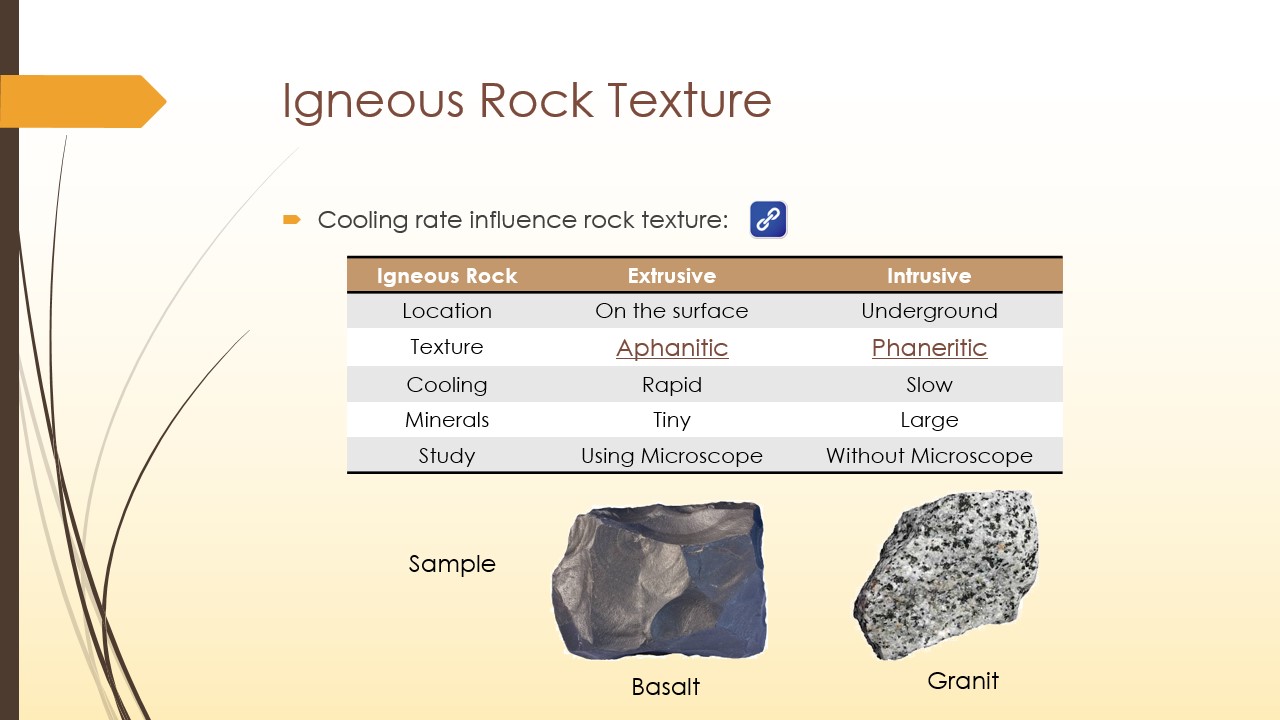How do cooling rates influence the texture of igneous rocks?

Understand the Problem
The question is asking for an explanation of how cooling rates influence the texture of igneous rocks, particularly discussing the differences between extrusive and intrusive rocks.
Answer
Rapid cooling leads to fine-grained textures, slow cooling results in coarse-grained textures.
Rapid cooling leads to fine-grained textures with tiny crystals (aphanitic), while slow cooling results in coarse-grained textures with large crystals (phaneritic).
Answer for screen readers
Rapid cooling leads to fine-grained textures with tiny crystals (aphanitic), while slow cooling results in coarse-grained textures with large crystals (phaneritic).
More Information
The texture of igneous rocks is strongly influenced by the rate at which the molten rock cools, dictating whether the resultant rock is composed of tiny or large crystals.
Tips
A common mistake is confusing the textural terms: aphanitic (fine-grained) and phaneritic (coarse-grained). Ensure to match these terms correctly with their corresponding cooling rates and settings.
Sources
- The web page with info on - University of Houston - uh.edu
- Igneous Rocks: Crystallization and Cooling Rate - Cornell University - ccmr.cornell.edu
- Grain Size & Cooling Rate - The Geological Society - geolsoc.org.uk
AI-generated content may contain errors. Please verify critical information